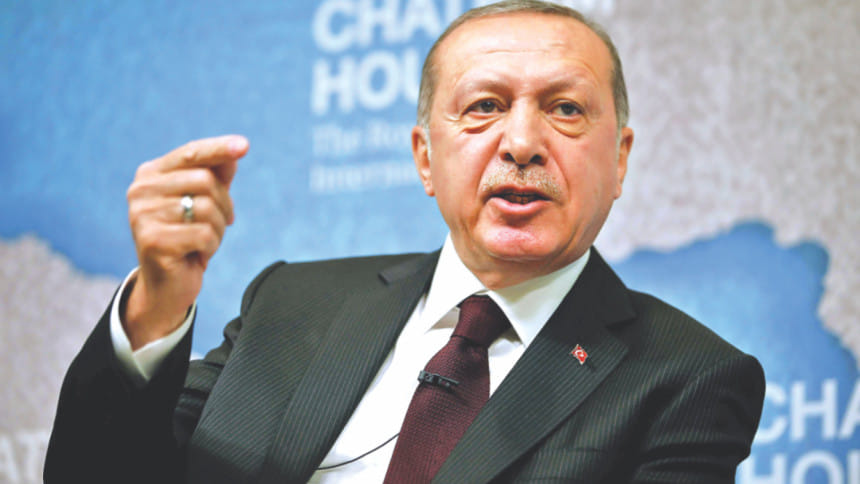Why is there a furor?

-
The US has lost its role as mediator in the Middle East by moving its embassy in Israel to Jerusalem, Turkish President Recep Tayyip Erdogan said in London yesterday. "With its latest step America has chosen to be a part of the problem, not a solution, and lost its mediator role in the Middle East peace process", Erdogan said.
The United States opened its embassy in Jerusalem yesterday, a move that has delighted Israel and infuriated Palestinians.
WHY TRUMP DID IT
There has long been pressure from pro-Israel politicians in Washington to move the US Embassy from Tel Aviv to Jerusalem, and US President Donald Trump made it a promise of his 2016 election campaign.
Vice-President Mike Pence and David Friedman, the ambassador to Israel appointed by Trump, are thought to have pushed hard for both recognition and embassy relocation. The decision was popular with many conservative and evangelical Christians who voted for Trump and Pence.
Trump acted under a 1995 law that requires the United States to move its embassy to Jerusalem. But Bill Clinton, George W Bush and Barack Obama consistently signed waivers. Announcing his decision on December 6, Trump cited the Jerusalem Embassy Act and suggested his predecessors had "lacked courage."
ROLE OF JERUSALEM
Religion, politics and history. Jerusalem is a city sacred to Judaism, Christianity and Islam, and each religion has sites of great significance there. Jerusalem has been fought over for millennia by its inhabitants, and by regional powers and invaders including the Egyptians, Babylonians, Romans, early Muslim rulers, Crusaders, Ottomans, the British Empire and by the modern states of Israel and its Arab neighbours.
Israel's government regards Jerusalem as the eternal and indivisible capital of the country, although that is not recognised internationally. Palestinians say East Jerusalem must be the capital of a future Palestinian state.
CURRENT STATUS
In 1947, the United Nations General Assembly decided the then British-ruled Palestine should be partitioned into an Arab state and a Jewish state. But it recognised that Jerusalem had special status and proposed international rule for the city, along with nearby Bethlehem, as a 'corpus separatum' to be administered by the United Nations.
That never happened. When British rule ended in 1948, Jordanian forces occupied the Old City and Arab East Jerusalem. Israel captured East Jerusalem from Jordan in the 1967 Middle East war and annexed it in a move not recognized internationally.
In 1980 the Israeli parliament passed a law declaring the "complete and united" city of Jerusalem to be the capital of Israel.
OTHER EMBASSIES
Guatemala will move its embassy from Tel Aviv to Jerusalem on May 16 and Paraguay later this month. Netanyahu said in April "at least half a dozen" countries were now "seriously discussing" following the US lead. In December, 128 countries voted in a non-binding UN General Assembly resolution calling on the United States to drop its recognition of Jerusalem as Israel's capital. Nine voted against, 35 abstained and 21 did not cast a vote.
WHAT WILL HAPPEN NEXT?
Since the announcement there has been tension, with Palestinian protests in Jerusalem, Gaza and the West Bank. More than 40 Palestinians have been killed by Israeli troops in Gaza. That protest culminates on May 15, a day Palestinians traditionally lament homes and land lost as Israel was created in 1948, given extra significance this year because it falls on the day after the US Embassy move.

 For all latest news, follow The Daily Star's Google News channel.
For all latest news, follow The Daily Star's Google News channel. 



Comments